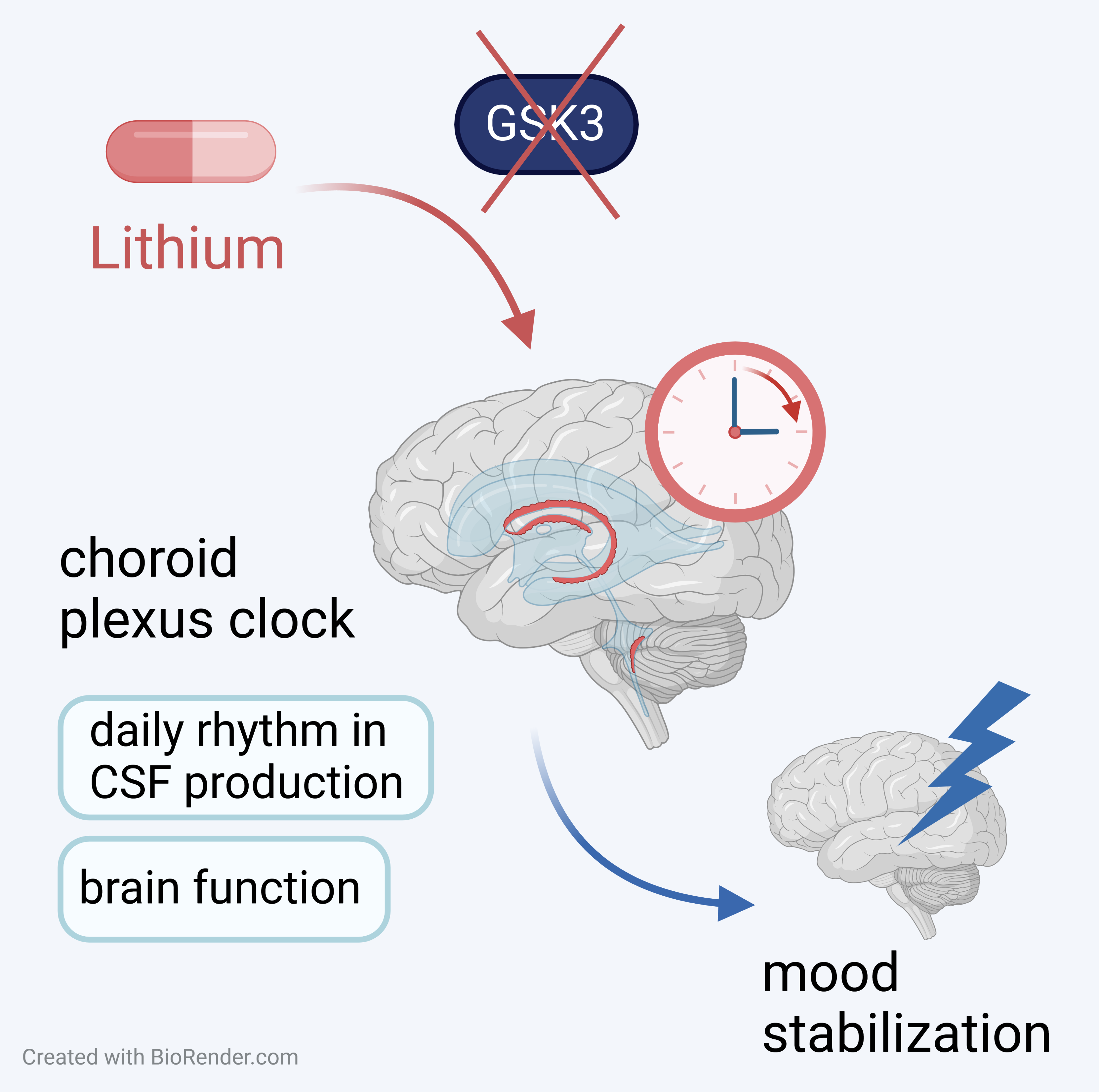Take a pill in the morning or in the evening? The mood stabilizer lithium affects the brain differently depending on the time of day
Lithium is an effective mood stabilizer, but the mechanism of its therapeutic effect is not well understood. Prof. Sumová's team from the Institute of Physiology of the Czech Academy of Sciences investigated the effect of lithium on the circadian clock located in the ventricular barrier complex containing the choroid plexus, which is a part of the glymphatic system that influences gross brain function via the production of cerebrospinal fluid. They found that treating mice with lithium changed the level of clock gene expression in the choroid plexus. To study the effect of lithium in more detail, they used a transgenic mouse model with a circadian reporter (mPer2LUC) to monitor the choroid plexus clock in real time. When they applied the drug to tissue explanted from the mice in vitro, the effect on the clock was highly dependent on the timing of application. Lithium delayed the clock for most of the day, but during a short window it caused phase advances. Using specific inhibitors, the authors demonstrated that the effect was not mediated via inhibition of the enzyme GSK3, a canonical mechanism of lithium, but rather via modulation of PKC activity. The results suggest a novel mechanism of therapeutic action for lithium that aligns the function of the choroid plexus clock-related glymphatic system with the sleep-wake cycle to improve brain function in psychiatric patients. Importantly, the data argue for personalized timing of lithium treatment in patients with bipolar disorder.

Liška K, Dočkal T, Houdek P, Sládek M, Lužná V, Semenovykh K, Drapšin M, Sumová A: Lithium affects the circadian clock in the choroid plexus – A new role for an old mechanism, Biomedicine & Pharmacotherapy, Vol. 159, March 2023, 114292, IF 7.419 DOI
